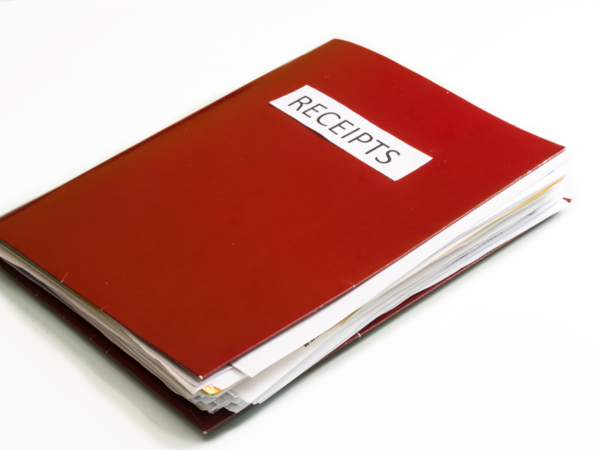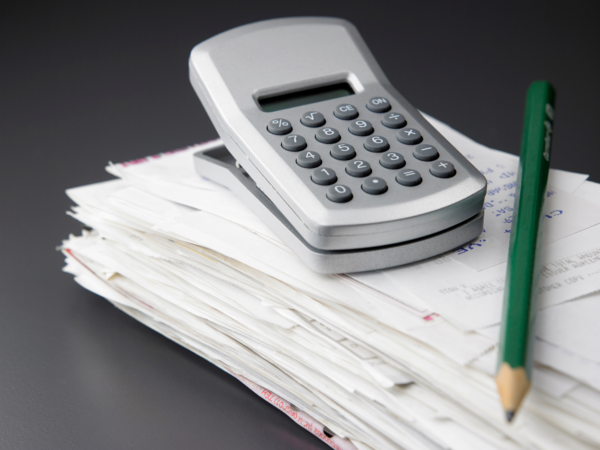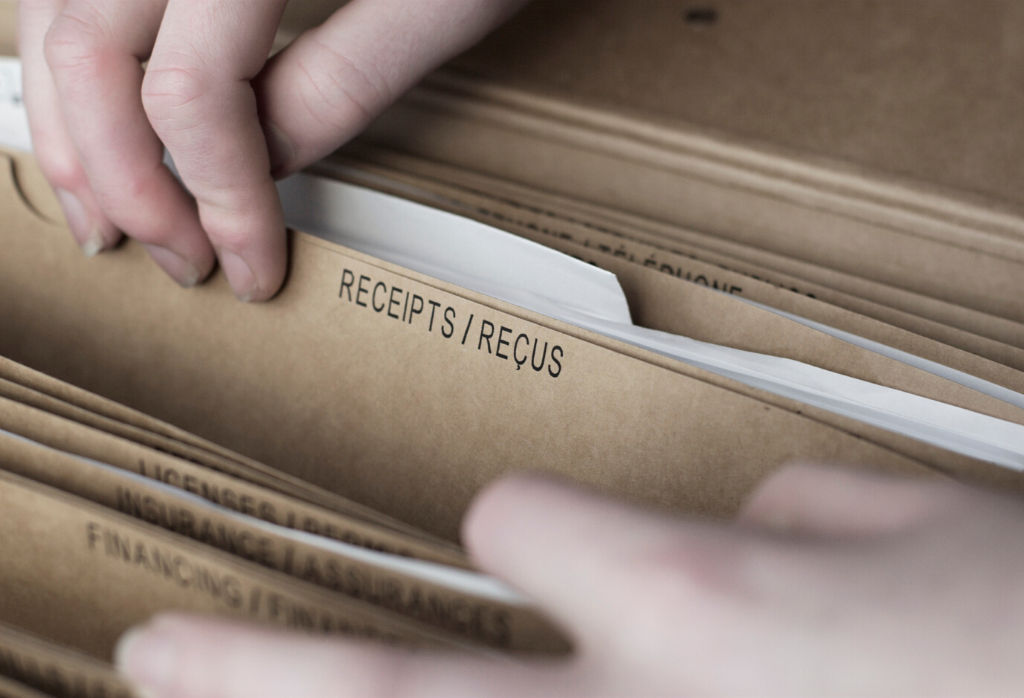Keeping track of receipts while running a business can fill even the most responsible among us with fear. Once you set up a system for organizing your receipts, though, it becomes as natural as any other part of your business.
Developing a systematic process of filing documents can save you a lot of time and money when it’s time to file your taxes. Here’s how you can organize your business receipts during the year!
Scan Receipts And Organize Them Digitally
When the ink on a receipt fades, do you have a backup? The Canada Revenue Agency doesn’t consider it their problem if they can’t read the information. You have to provide it, and if it’s unreadable, you may not be able to prove it relates to a business expense.
There are tools you and your accountant can use to make this easier. One program, Dext, is a helpful tool for collecting, storing and tracking business records. It eliminates the need for data entry and hard copy filing by storing and organizing receipts, bills, invoices and bank statements in a digital format!
Another great idea is to have business receipts emailed to you, and many vendors now offer this for their clients in lieu of hard copies.
Use A Business Account And Card
 It’s good practice to use a credit card or debit card to cross-check details with your paper receipts. When you use cash, you can lose track of the transactions. Having a separate business account and credit card helps you avoid mixing your business with personal expenses.
It’s good practice to use a credit card or debit card to cross-check details with your paper receipts. When you use cash, you can lose track of the transactions. Having a separate business account and credit card helps you avoid mixing your business with personal expenses.
If all the transactions are related to your business, you can claim the fees associated with that account! These can include the annual fees on a points card and the interest from a balance carried from one month to the next.
Make Notes About The Purpose Of Your Receipts
 You can easily remember why you bought a printer for your small business, but do you remember why you hung onto a receipt from a local restaurant? A business account and credit card can help you avoid a lot of confusion, but you may still need to clarify why exactly you used the business account in the first place.
You can easily remember why you bought a printer for your small business, but do you remember why you hung onto a receipt from a local restaurant? A business account and credit card can help you avoid a lot of confusion, but you may still need to clarify why exactly you used the business account in the first place.
Making notes is a great idea when filing dining and entertainment expenses, including who you met, the purpose of the meeting, and any other relevant information on the back of the receipt. Do this right after the event while the memory is fresh so you won’t struggle with pertinent details later. Without notes, you may not remember why you included a receipt in your tax filings – or why you used a business account for it in the first place!
Review Your Receipts Every Month
If you’re a small business owner without an accounting department, sit down for about a half-hour every month and review and categorize their receipts. It helps you keep things manageable and ensures you won’t miss any tax deductions.
A simple tool like an accordion folder can be invaluable to reviewing your receipts. An inexpensive folder from your local office supply store will let you organize any receipts by year and category, making finding a specific document a piece of cake in the future!

